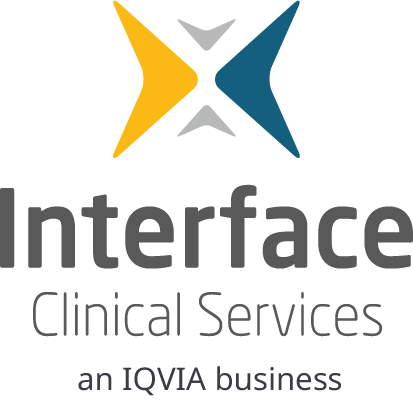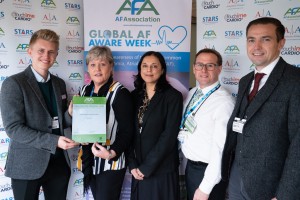QOF Disease Prevalence Coding Support
![]()
Our Clinical Pharmacists are now able to offer coding support across a number of QOF domains

Worked delivered by Interface has won a Healthcare Pioneer Award. The pharmacist-led programme assisting primary care sites in the North West prevent atrial fibrillation (AF) related strokes has resulted in a 22% reduction in strokes year on year.
The programme has been so successful, that it has won an AF Association Healthcare Pioneer award for 2020 recognising innovative and positive advances in diagnosis, anticoagulation therapy and treatment for AF.
The review of AF patients in Tameside and Glossop was commissioned by the CCG following data which reported that the region showed a significantly higher rate of AF to the expected prevalence. The review took place between November 2017 and June 2018. A team of pharmacists from Interface Clinical Services worked closely with clinicians and nurses from 38 general practices across the region to review their AF population. The review aimed to reduce incidents of AF related strokes through early diagnosis, optimisation of anticoagulation therapy, improvement in the management of ‘known but not treated’ patients and the support of patients with treatment adherence and lifestyle advice.
Following the screening and assessment of over 4,500 patients, the programme resulted in a decrease in the projected 12 month stroke incidence for the region of 76.82% to 66.96%. External stroke admissions data showed a 22% reduction in strokes for a three month period following the completion of the programme compared to the previous year which, based on these figures, predicts that 124 strokes could be prevented each year. In terms of cost savings, with the current average societal cost of a stroke estimated at £45,409 in the first 12 months plus £24,778 in subsequent years, strokes prevented within Tameside and Glossop CCG could account for an in year NHS cost saving upwards of £1.6million and an overall societal cost saving of almost £5.6million.
Pharmacist and Interface Service Development Lead, Jack Birchall who led the review comments: “During the review, we stratified AF patients who were at high risk of stroke. We then not only ensured that they were receiving optimal therapy to reduce the risk of stroke, reviewing vitamin K antagonists (VKAs) or direct oral anticoagulants (DOACs) usage, but also talked directly to patients about the risk and symptoms of stroke or TIAs as many people with AF are not aware that they are five times more likely to suffer a stroke or TIA due to the formation of blood clots which can block arteries to the brain.”
As part of the programme, AliveCor Kardia Mobile devices were provided to practices which enabled staff to carry out ‘near patient testing’ to detect the presence of AF in the future. The results of this and other successful AF programmes will be disseminated as a model of best practice across the UK by the AF Association so that other regions can adapt to improve their own practice in the management of patients with AF.
Picture caption L-R:
Heather Palmer (Tameside & Glossop CCG), Cara Afzal (Health Innovation Manchester), Mark Owen (CCG) and Jack Birchall, Pharmacist and Development Lead, Interface Clinical Services.

![]()
Our Clinical Pharmacists are now able to offer coding support across a number of QOF domains